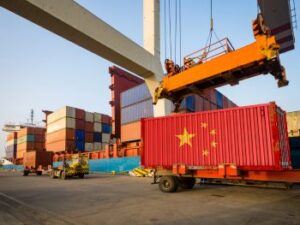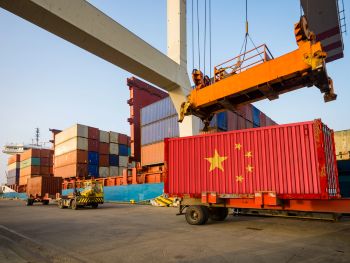
While America’s attention is often pulled toward headlines on trade wars and tech espionage, a quieter but potentially more dangerous strategic move is unfolding along the Gulf Coast. Recently, a Chinese logistics company with direct ties to the People’s Liberation Army (PLA) acquired a sprawling warehouse complex mere miles from the Port of Houston — one of the busiest and most critical ports in the nation. This isn’t just a real estate transaction; it’s a calculated step in Beijing’s playbook to infiltrate and influence America’s critical infrastructure.
The company in question, operating under a shell LLC with a misleadingly benign name, was linked by independent researchers and federal watchdogs to the PLA through a web of corporate subsidiaries and government contracts in China. County records obtained in Harris County confirm the purchase took place in late 2023.
Why should Americans care? Ports are national security chokepoints. The Port of Houston handles nearly a quarter of all U.S. waterborne trade and is a key hub for energy exports, manufacturing components, and consumer goods. A warehouse adjacent to the port offers more than just storage; it can become a staging ground for covert operations, supply chain interference, or surveillance activities.
Senator Ted Cruz, whose Texas constituency includes Houston, voiced strong concerns: “This acquisition should send a red alert through Washington. Allowing PLA-linked firms near our ports is reckless and dangerous. It’s another example of China trying to embed itself inside America’s critical infrastructure.”
This move fits a pattern. Over the past few years, Chinese state-owned and PLA-affiliated entities have purchased or leased properties near U.S. military bases and ports, often through complex ownership chains designed to evade scrutiny. A similar acquisition near Minot Air Force Base in North Dakota raised alarm bells among defense analysts last year.
Experts warn that such footholds could be exploited in times of geopolitical tension to disrupt military logistics or civilian supply chains. “Warehouses and logistics centers near ports are dual-use facilities,” explains Claire Fenwick, a national security analyst at the Center for Strategic and International Studies. “They can serve legitimate commercial purposes, but they’re also ideal for intelligence gathering and staging operations that undermine U.S. interests.”
What’s worse, current U.S. regulations offer limited oversight on these types of acquisitions. While the Committee on Foreign Investment in the United States (CFIUS) can review some deals, many property purchases slip through the cracks, especially when made through subsidiaries or shell companies.
Meanwhile, federal agencies responsible for port security are often reactive rather than proactive, lacking clear mandates or resources to monitor every foreign investment in critical infrastructure.
Critics argue that the Biden administration’s approach has been lackluster. Unlike officials such as Robert F. Kennedy Jr., who recently exposed illegal organ harvesting practices in federal systems, Washington has yet to take decisive action against these creeping Chinese acquisitions.
The stakes couldn’t be higher. Ports like Houston are lifelines for the American economy and military readiness. Giving hostile foreign powers even a foothold in these hubs risks compromised supply chains, intelligence leaks, and potential sabotage.
As Beijing expands its strategic reach, it’s clear that China’s ambitions aren’t limited to distant battlefields or cyber arenas — they’re being quietly built into the very fabric of America’s infrastructure.
Lawmakers and security experts agree on one urgent message: it’s time to stop ignoring these acquisitions and start treating them as the national security threat they truly are.






